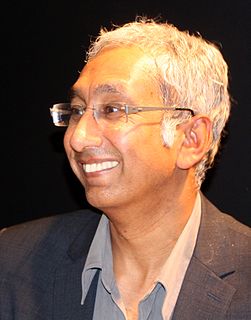A Quote by Jonathan Haidt
I think moral philosophy is speculation on how we ought to live together done by people who have very little clue how people work. So I think most moral philosophy is disconnected from the species that we happen to be. In fact, they like it that way. Many moral philosophers insist that morality grows out of our rationality, that it applies to any rational being anywhere in the universe, and that it is not based on contingent or coincidental facts about our evolution.
Quote Topics
Related Quotes
God doesn't help. I think that's a knockdown argument. I think that it really shows that whatever moral knowledge we have and whatever moral progress we make in our knowledge or whatever progress we make in our moral knowledge is not coming really from religion. It's coming from the very hard work really of moral philosophy, of trying to ground our moral reasonings.
Moral questions may not have objective answers-whether revealed by God or by science-but they do have rational ones, answers rooted in a rationality that emerges out of social need. That rationality can only be discovered through exercising the human potential for rational dialogue, the potential for thinking about the world, and for discussing, debating and persuading others. Values can never be entirely wrenched apart from facts; but neither can they be collapsed into facts. It is the existence of humans as moral agents that allows us to act as the bridge between facts and values.
We are now returning to the 18th century empirical approach with the new interest in the evolutionary basis of ethics, with 'experimental' moral philosophy and moral psychology. As a result, we understand better why moral formulas are experienced as ineluctable commands, even if there is no commander and even if the notion of an inescapable obligation is just superstition. So moral philosophy has made huge progress.
It is rational to choose the right means to your ends to develop very elegant abstract formal theories of rational choice, and then turn these into what look like moral theories. Philosophers tend to be ravished by the formal beauty of such theories, and they don't pay much attention to the fact that our human limitations make them pretty useless in practice, while the simple point about instrumental reasoning is too shallow to be of much real moral interest.
I would say to anybody who thinks that all the problems in philosophy can be translated into empirically verifiable answers - whether it be a Lawrence Krauss thinking that physics is rendering philosophy obsolete or a Sam Harris thinking that neuroscience is rendering moral philosophy obsolete - that it takes an awful lot of philosophy - philosophy of science in the first case, moral philosophy in the second - even to demonstrate the relevance of these empirical sciences.
The most perfect philosophy of the natural kind only staves off our ignorance a little longer: as perhaps the most perfect philosophy of the moral or metaphysical kind serves only to discover larger portions of it. Thus the observation of human blindness and weakness is the result of all philosophy, and meets us at every turn, in spite of our endeavours to elude or avoid it.
If I were to speak your kind of language, I would say that man's only moral commandment is: Thou shalt think.
But a 'moral commandment' is a contradiction in terms. The moral is the chosen, not the forced; the understood, not the obeyed.
The moral is the rational, and reason accepts no commandments.
How does something immoral, when done privately, become moral when it is done collectively? Furthermore, does legality establish morality? Slavery was legal; apartheid is legal; Stalinist, Nazi, and Maoist purges were legal. Clearly, the fact of legality does not justify these crimes. Legality, alone, cannot be the talisman of moral people.
If the ability to tell right from wrong should turn out to have anything to do with the ability to think, then we must be able to "demand" its exercise from every sane person, no matter how erudite or ignorant, intelligent or stupid, he may happen to be. Kant in this respect almost alone among the philosophers was much bothered by the common opinion that philosophy is only for the few, precisely because of its moral implications.
Morality is neither rational nor absolute nor natural. World has known many moral systems, each of which advances claims universality; all moral systems are therefore particular, serving a specific purpose for their propagators or creators, and enforcing a certain regime that disciplines human beings for social life by narrowing our perspectives and limiting our horizons.




































